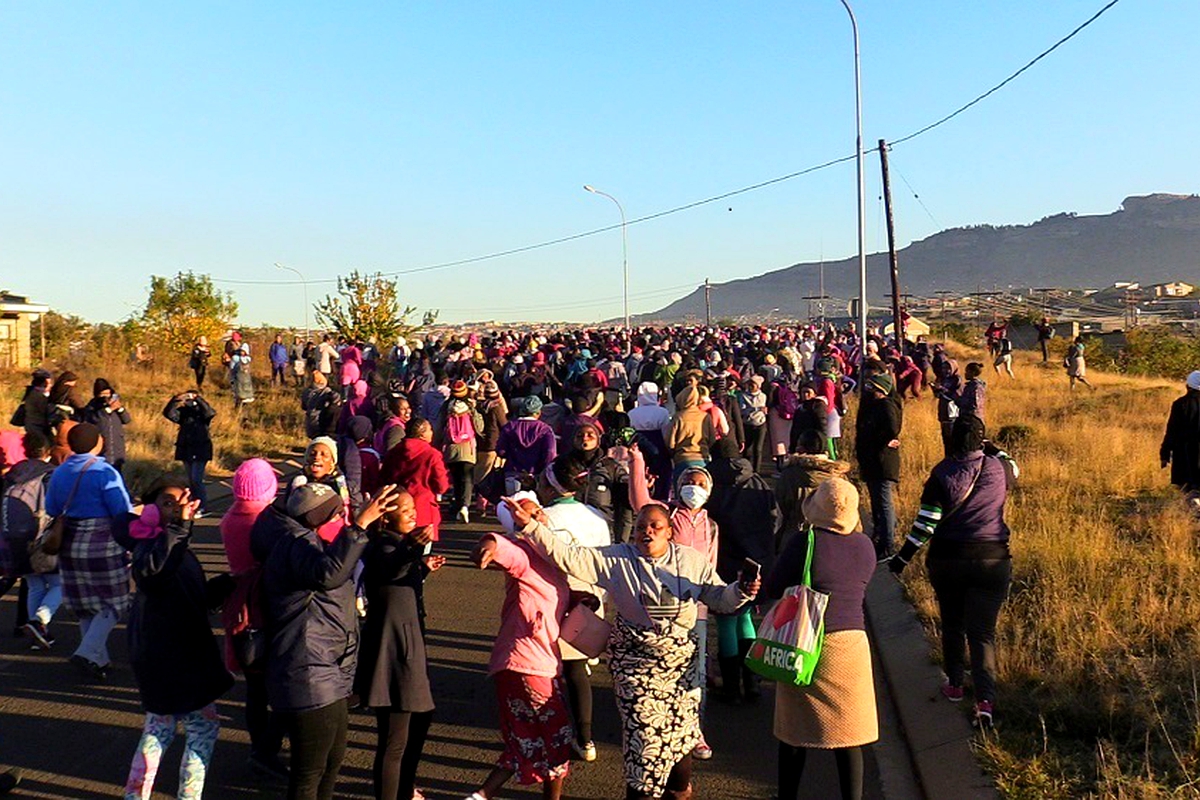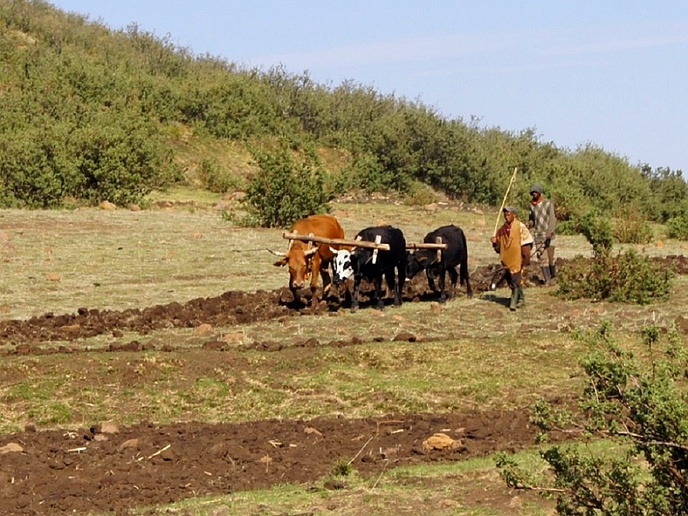ALTHOUGH labour unions have been given a 6.5 percent salary increase, they demand a 20 percent salary hike across the board. But at what cost? Is this sustainable?
comments
May 13, 2022
EDITOR
3 min read
Is unions’ demand for a 20% pay hike sustainable?

Factory workers blocking the Thetsane Road during the May 2021salary protest
Story highlights
Granted, employees should get salaries relative to their skills, experience and qualifications. Their rewards should match those related to the market and industry. Salary increases should also be made to cover inflation but they should be cost reflective, especially if you work for a profit-making entity.
Labour unions did not just speak on their own behalf but on behalf of all and sundry, including government employees. For two years running, civil servants did not get an increment until this year when the Minister of Finance announced in his budget speech that he was giving them only five percent. They were looking for more.
Yet, the World Bank says the major challenge regarding the high wage bill in Lesotho is partly attributable to the fast pace of wage increases in real terms. It says Lesotho’s real (that is, inflation-adjusted) economy must grow by roughly 2.7 percent every year just to prevent the wage bill from rising further as a share of the Gross Domestic Product (GDP).
This is unachievable given that the projected economic growth globally has been adjusted down to 1.5 percent of GDP.
It is also intriguing that the bloated wage bill that has been growing at seven to nine percent annually between 2007 and 2017, is not linked with performance valuations. The World Bank said this has undermined workforce incentives, a sense of fairness, and the morale of public service employees.
The 2013 grading system for civil servants, police, army, and teachers, that facilitated salary adjustments to certain grades, appears to have increased the wage bill.
With the new system, all public employees benefit from the two parts of salary increases: a Cost-of-Living Adjustment (COLA) and automatic notch increases every year.
COLAs are provided to all employees to ensure that wages rise by at least the expected value of inflation.
However, the World Bank noted that COLA exceeded the inflation rate in some years.
In addition, all employees are automatically promoted to a higher notch in their grade, which results in average wages rising even faster, that is, by an estimated 2.7 percent per year (2.8 percent before 2013).
Otherwise, the World Bank said international comparisons suggested that Lesotho’s wage bill was high. Although Lesotho’s wage bill relative to its GDP is the highest among a broad sample of countries, public employment expressed as a share of the working-age population is slightly below average.
The contrast is even starker when Lesotho is compared directly with South Africa. Despite having a much lower per capita GDP, the average government salaries in Lesotho are roughly 75 percent of those in South Africa; for workers in the lowest pay grades, the ratio is smaller at between 38 and 43 percent.
Enjoy our daily newsletter from today
Access exclusive newsletters, along with previews of new media releases.
The World Bank said there was a need to change the existing compensation policies and/or enforcement and implementation of the existing laws and policies by constraining the growth of public wages.
The two tiers of across-the-board salary increases representing seven to nine percent per year have not only created a significant fiscal burden but have also generously rewarded nonperforming staff.
The bank said it would be advisable to limit the wage increase, move to the combined salary increase system, and limit notch increases to better performing staff.
In addition, it said, enforcement and implementation of the existing policies defined in the law, such as performance-based pay, would be urgent and critical not only to containing the wage bill, but also to improving the performance of the public administration.
Tailored for you






